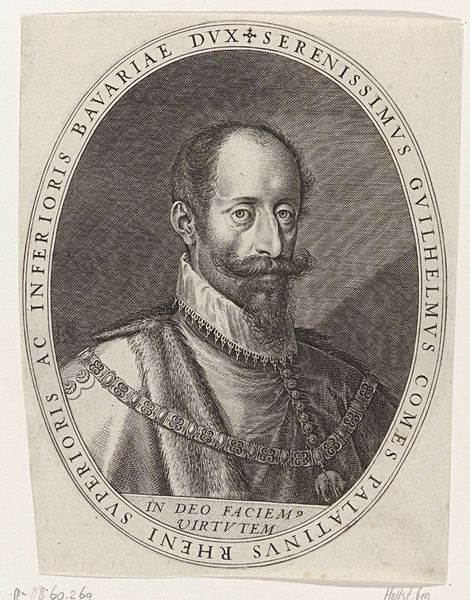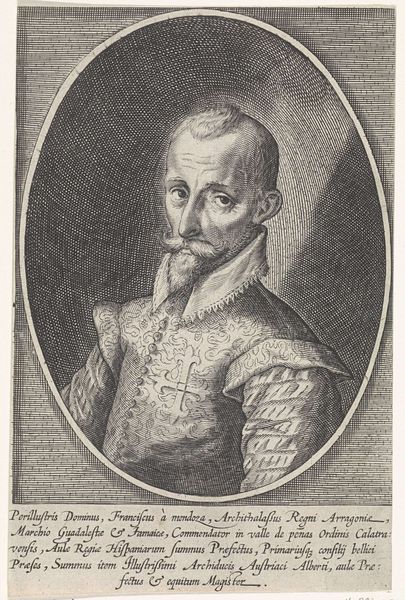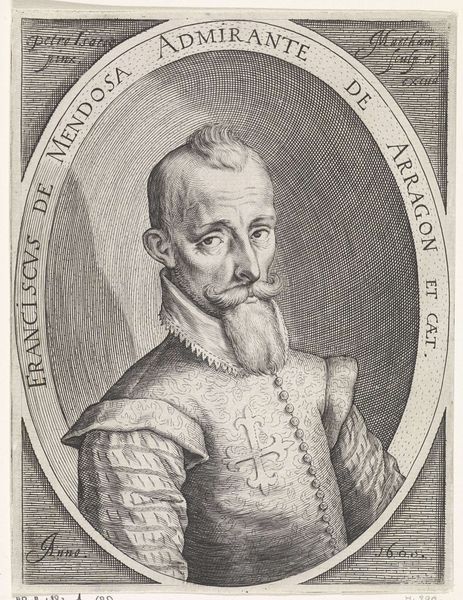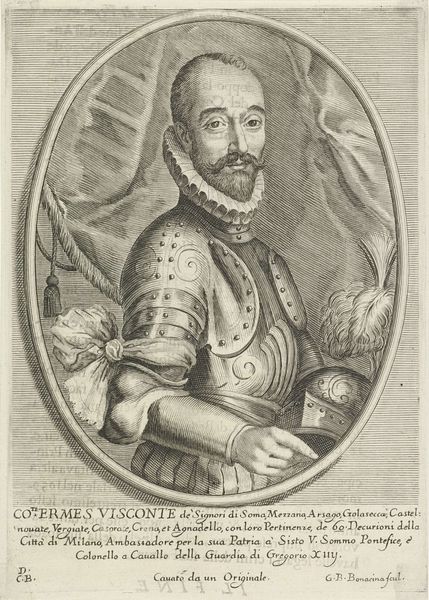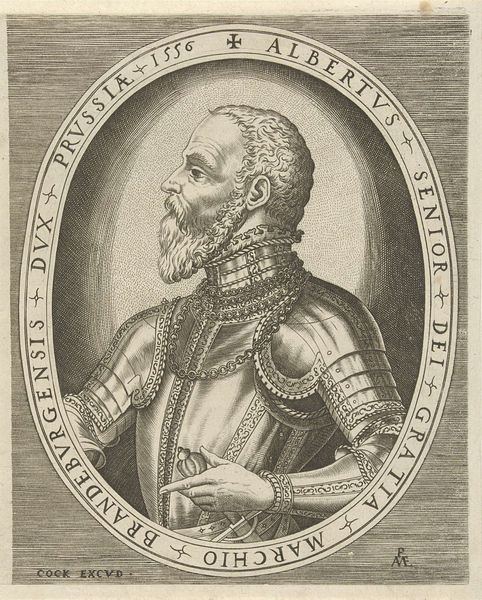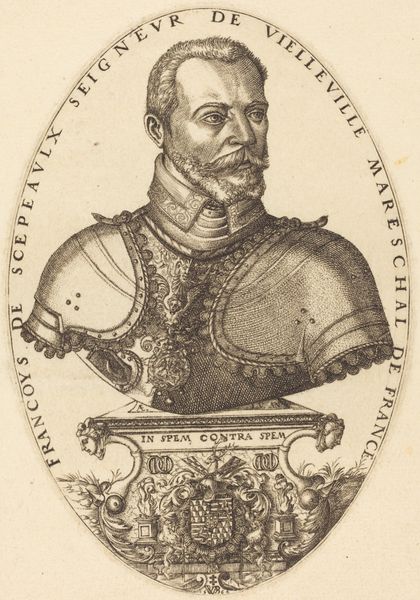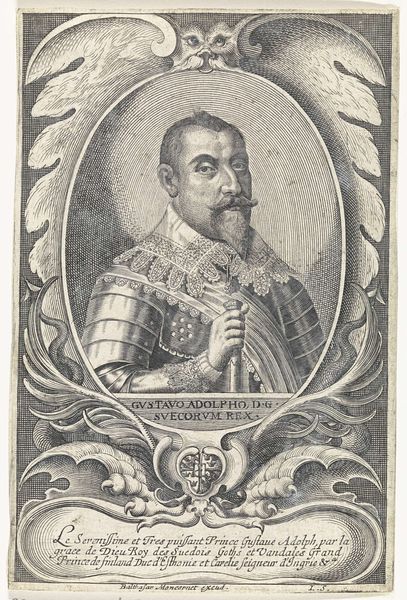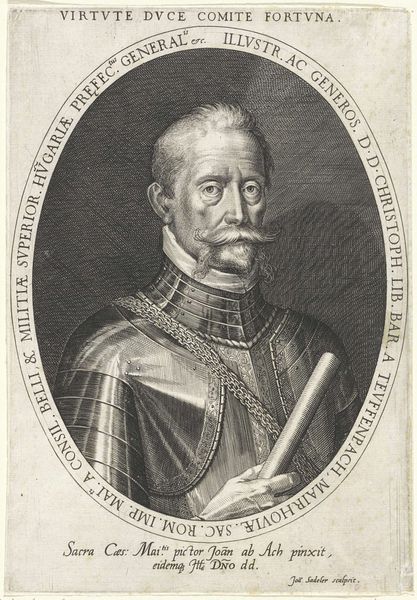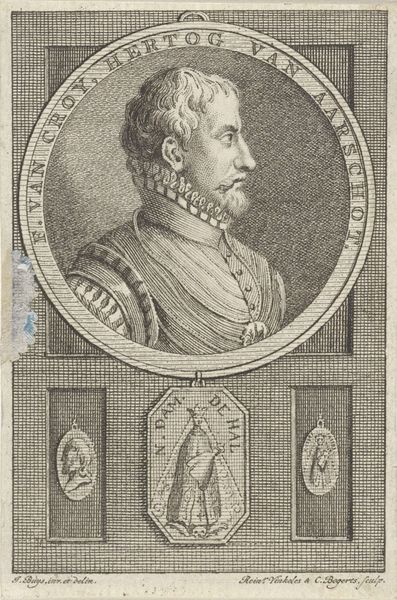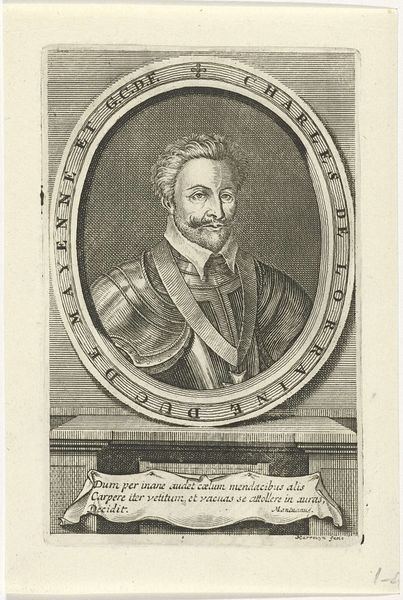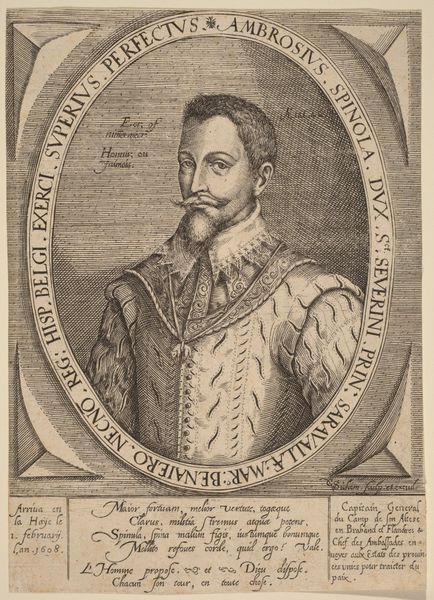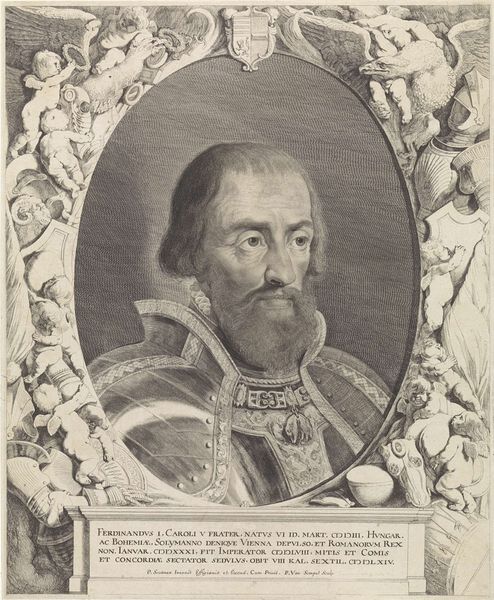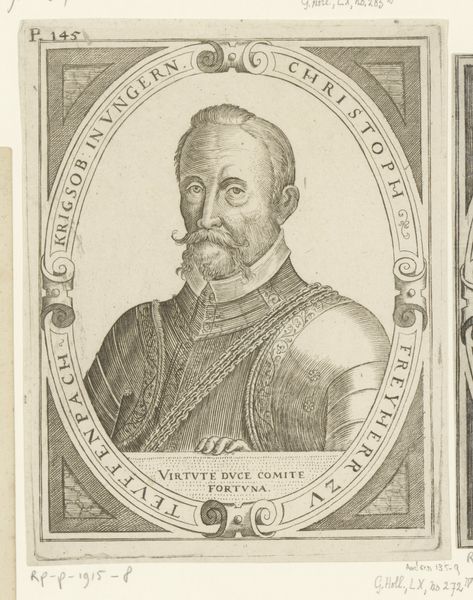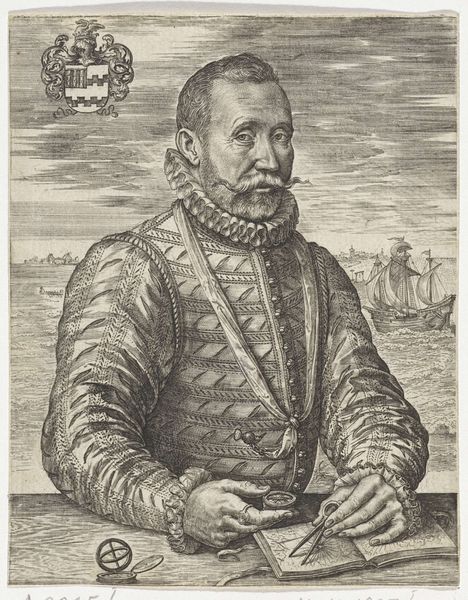
print, metal, paper, engraving
#
portrait
#
baroque
# print
#
metal
#
paper
#
history-painting
#
engraving
Dimensions: height 232 mm, width 143 mm
Copyright: Rijks Museum: Open Domain
This portrait of Ambrogio Spinola was made by Pieter de Jode II sometime in the 17th century, using the technique of engraving. Look closely, and you can see how the lines define form, create tone, and describe texture. The artist incised lines into a metal plate, likely copper. This labor-intensive process involves pushing a tool called a burin through the metal. The depth and density of the lines determine the visual weight and shading. The plate would then be inked and printed, transferring the image to paper. The controlled precision of engraving was perfectly suited to the depiction of wealth and status. Spinola's fine garments and the Latin inscription that surrounds him signal his importance. The very act of creating such a detailed print speaks to the economic resources required for its production. Consider the social context: prints like this one circulated widely, promoting the image of powerful figures and reinforcing social hierarchies. By understanding the materials and the making, we can appreciate how this artwork participated in the power dynamics of its time.
Comments
No comments
Be the first to comment and join the conversation on the ultimate creative platform.
